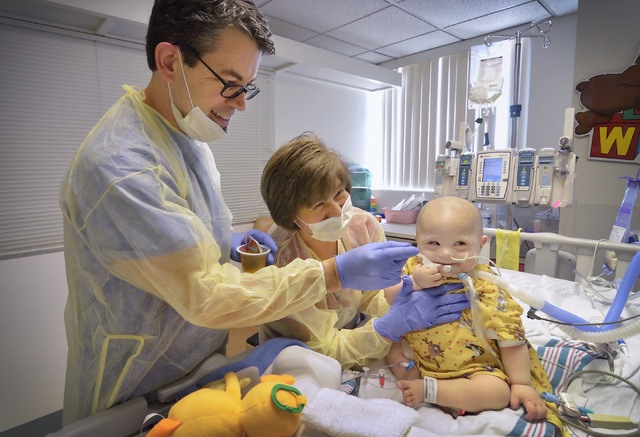Common Issues a Speech Pathologist Can Address Quickly
Common Issues a Speech Pathologist Can Address Quickly
Blog Article
How a Speech Pathologist Can Aid Improve Communication Abilities
Reliable communication is a keystone of individual and specialist success, yet several people encounter obstacles that hinder their capability to express themselves plainly. A speech pathologist is outfitted to resolve these obstacles through targeted analysis and intervention methods tailored per individual's requirements. By employing evidence-based therapeutic methods, they not only function to enhance speech and language conditions but also improve total communicative capability. Understanding the complex duty of a speech pathologist exposes exactly how their expertise can change lives, inviting a closer exam of the certain methods and end results related to their practice.
Recognizing Interaction Conditions
Comprehending communication conditions is important for recognizing how they influence people' ability to share themselves and engage with others. Interaction conditions incorporate a broad variety of difficulties that influence speech, language, and social interaction, often hindering effective interaction. These disorders can occur from numerous variables, including neurological problems, developmental delays, physical impairments, or psychological issues.
Speech conditions may show up as problems in fluency, voice, or expression manufacturing, influencing just how words are noticable or talked. Language conditions, on the various other hand, entail obstacles in understanding or using language, which can restrain both verbal and non-verbal communication. Social interaction conditions are identified by problems in the pragmatic aspects of interaction, such as taking turns in conversation or understanding social signs.
The repercussions of interaction conditions are extensive, affecting not only the individual's capability to share thoughts and emotions but likewise their social connections, academic opportunities, and total top quality of life. Recognition of these problems can foster compassion and support, urging effective methods for communication and involvement. Recognizing the complexities of communication conditions is a vital action towards advertising inclusivity and addressing the requirements of those impacted.
Duty of a Speech Pathologist
Speech pathologists often play a crucial role in identifying and treating interaction conditions, utilizing a variety of evidence-based strategies tailored per person's requirements. These professionals function with individuals throughout the life-span, from youngsters with speech hold-ups to grownups recovering from strokes or distressing mind injuries. Their proficiency includes a variety of communication problems, including articulation, voice, language, and fluency conditions.
In healing settings, speech pathologists use structured interventions developed to improve communication abilities. They may implement approaches such as speech workouts, language games, and social interaction training to assist in renovations in receptive and expressive language capabilities. Speech Pathologist. In addition, they enlighten customers and their family members concerning reliable communication methods and adaptive methods to navigate day-to-day communications
Beyond direct treatment, speech pathologists work together with other medical care caretakers, teachers, and experts to make sure a comprehensive technique to therapy. They advocate for clients by supplying resources and assistance, making it possible for individuals to accomplish their interaction goals and boost their total lifestyle. As professionals in the field, speech pathologists are crucial in promoting reliable communication, promoting independence, and boosting social involvement for those with interaction obstacles.
Evaluation and Medical Diagnosis Process
The evaluation and medical diagnosis procedure conducted by speech pathologists normally includes a detailed assessment to recognize interaction problems accurately. This process begins with a detailed medical history, where the medical professional gathers relevant info about the person's medical, instructional, and developmental background. Understanding the context of the individual's interaction problems is crucial for an exact medical diagnosis.
Complying with the medical history, speech pathologists utilize casual assessments and standardized tests to assess various aspects of interaction, including speech noise manufacturing, language understanding, expressive language, and social interaction abilities. These evaluations are customized to the individual's age and details concerns, giving beneficial data for evaluation.
Observation is additionally why not try here a crucial part of the analysis procedure, as it allows the medical professional to see direct how the private communicates in all-natural settings. Furthermore, interviews with member of the family and educators can give insight into the person's interaction website here difficulties throughout various environments.
Once the assessment is full, the speech pathologist manufactures the findings to identify a medical diagnosis and recommend appropriate interventions. This thorough evaluation process ensures that people get targeted support customized to their distinct communication needs, laying the structure for effective healing strategies.
Restorative Strategies and Approaches
Countless restorative techniques and approaches are utilized by speech pathologists to resolve a variety of communication conditions efficiently. One commonly made use of technique is articulation treatment, which focuses on correcting speech sounds via repeating and visual signs. This method is specifically helpful for people with speech sound problems.
Another efficient strategy is language intervention, which enhances both meaningful and receptive language abilities. This may include interactive tasks that advertise vocabulary development, syntax understanding, and conversational abilities. Furthermore, speech pathologists commonly make use of social abilities educating to boost pragmatic language capacities, allowing individuals to browse social interactions extra effectively.
Fluency shaping and stuttering alteration techniques are specifically designed to aid those experiencing fluency problems. These techniques help customers establish smoother speech patterns and handle the emotional and physical elements of stuttering.
In addition, augmentative and alternative communication (AAC) systems are utilized for individuals with extreme interaction impairments. These systems, which can consist of gestures, signs, or digital devices, offer essential assistance for effective communication.
Benefits of Speech Therapy

In addition, speech therapy can help in developing vital listening and comprehension skills, promoting much better interaction in discussions. People with cognitive-communication conditions can also benefit, as treatment concentrates on enhancing memory and analytic abilities, vital for reliable interaction.
An additional critical aspect is the emotional assistance offered throughout therapy sessions. Speech pathologists create a risk-free environment, encouraging clients to conquer anxiety and irritation associated to their visit our website interaction problems. This assistance can result in enhanced self-esteem and overall psychological well-being.
In addition, early intervention with speech therapy can stop additional problems, guaranteeing that individuals reach their full communicative potential. Generally, the benefits of speech treatment expand beyond mere speech renovation, favorably affecting different dimensions of life for those impacted by communication difficulties.
Conclusion
In summary, speech pathologists play an essential role in dealing with interaction disorders via assessment, diagnosis, and customized therapeutic treatments. By employing evidence-based methods, these professionals improve individuals' speech and language capacities, promoting boosted clarity, fluency, and social communication skills. The benefits of early treatment emphasize the importance of looking for help from speech pathologists, as their proficiency can significantly boost communicative capacity, eventually causing greater success in both specialist and individual balls.

Speech pathologists frequently play an important duty in treating and diagnosing communication conditions, using a variety of evidence-based techniques customized to each person's requirements. As experts in the area, speech pathologists are essential in cultivating efficient communication, advertising self-reliance, and improving social involvement for those with communication challenges.

Report this page